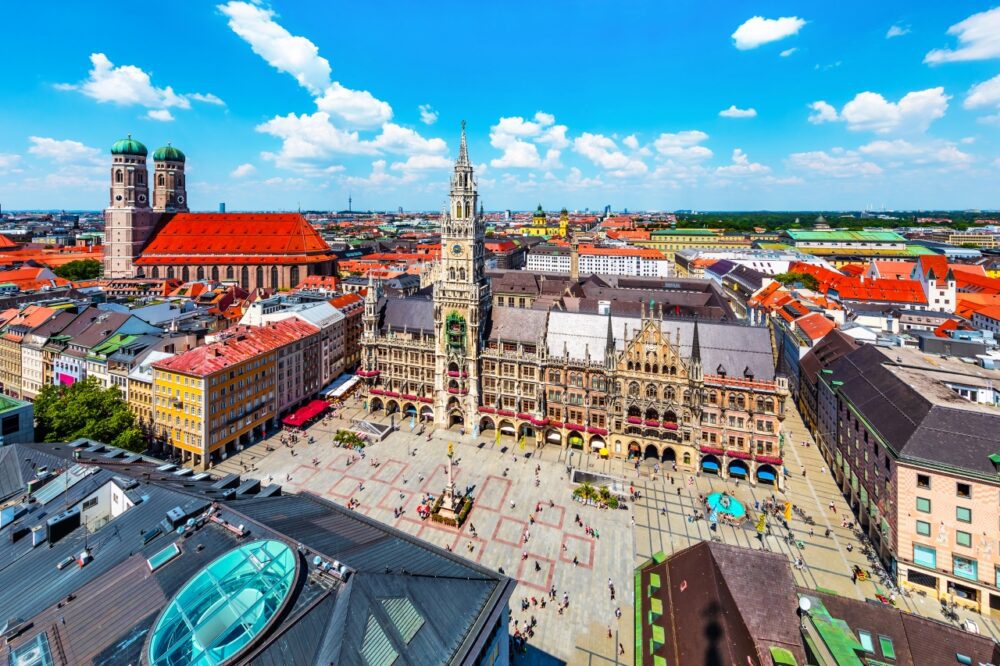
Is Munich worth visiting? Without a doubt! The first time I visited Munich, I was struck by how effortlessly the city combines Bavarian tradition with modern sophistication. Sipping a frothy beer in a historic beer hall one minute and exploring sleek art galleries the next, I realised Munich offers a unique blend of old-world charm and contemporary vibrancy.
Located in southern Germany, Munich is the capital of Bavaria and a cultural powerhouse. Famous for its annual Oktoberfest, the city has much more to offer beyond its beer culture. Munich boasts stunning architecture, from the fairy-tale-like Nymphenburg Palace to the iconic Glockenspiel in Marienplatz. Add to that its world-class museums, lush English Garden, and proximity to the Alps, and it’s clear why Munich is such a captivating destination. But is Munich worth visiting for you?
In this blog post, we’ll uncover the top 10 reasons why Munich should be on your travel list, from its rich history to its vibrant food and beer scenes. Plus, we’ll share practical travel tips to help you make the most of your visit. Keep reading to discover why Munich is a must-see destination in Germany.
Table of Contents
Pros – Reasons You Should Visit Munich
1. A City with a Perfect Blend of History and Modernity
Munich is a city that beautifully balances its deep historical roots with a modern and progressive atmosphere. From centuries-old buildings and medieval streets to sleek high-rises and cutting-edge technology, the city offers an intriguing mix of old and new. The Bavarian capital is home to traditional beer halls, historic churches, and grand palaces, yet it is also a global hub for industries like automotive engineering and technology, with major companies like BMW headquartered here.
Walking through the city, I was struck by how seamlessly Munich blends its past and present. One moment, I was admiring the stunning Gothic architecture of the New Town Hall in Marienplatz; the next, I was riding on one of Europe’s most efficient metro systems. Unlike some cities where modernization has overshadowed history, Munich preserves its cultural heritage while embracing progress, making it a fascinating place to explore.
2. The Stunning Beauty of Marienplatz and the Old Town
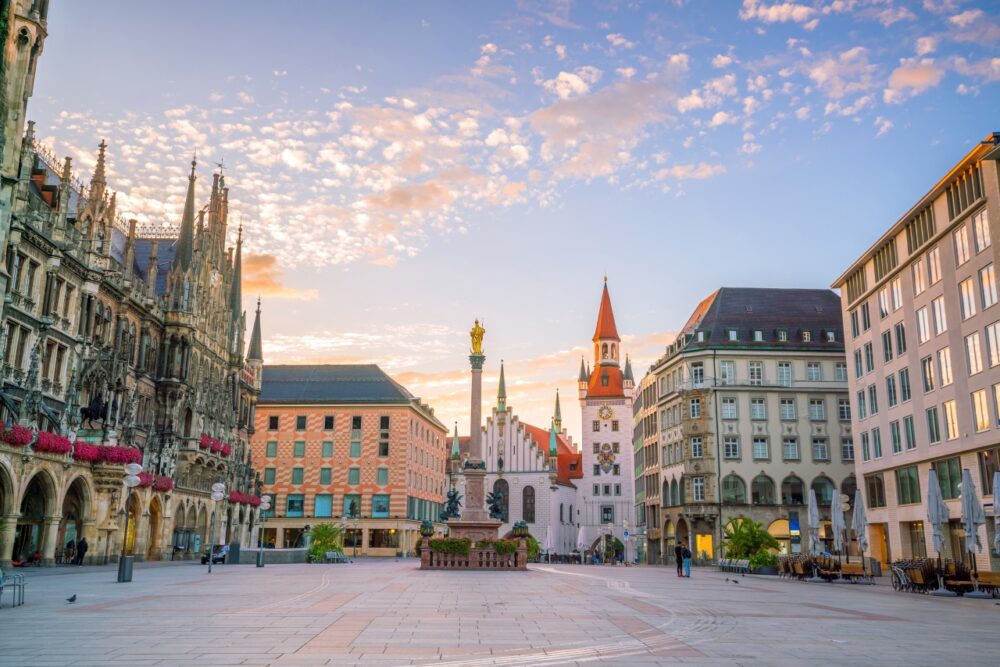
Marienplatz, the heart of Munich, is one of the most picturesque squares in Germany. Surrounded by stunning historic buildings, lively cafés, and bustling crowds, it is the perfect place to start exploring the city. The main highlight is the New Town Hall, a magnificent Gothic Revival building adorned with intricate details and home to the famous Glockenspiel, which performs daily with mechanical figures reenacting Bavarian historical events.
I arrived at Marienplatz just in time to watch the Glockenspiel performance, and despite being surrounded by tourists, it was a fun and charming experience. The square is also a great starting point for wandering through Munich’s old town, where you’ll find cobblestone streets, traditional Bavarian shops, and impressive landmarks like St. Peter’s Church, which offers one of the best panoramic views of the city from its tower.
3. World-Famous Beer Culture and Iconic Beer Halls
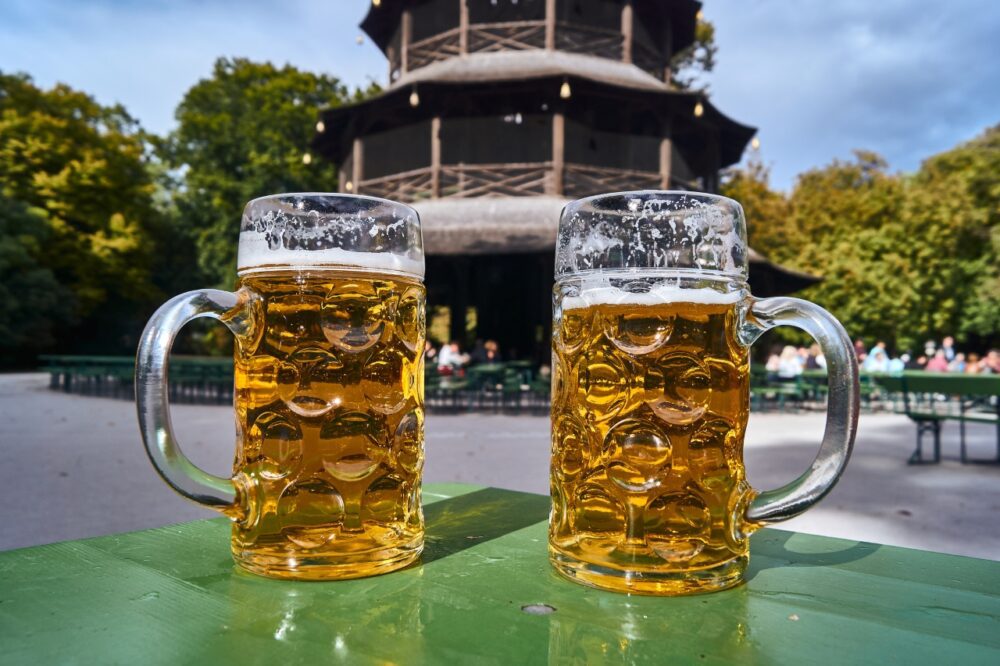
Munich is synonymous with beer, and the city’s beer culture is one of the best in the world. Home to legendary beer halls like Hofbräuhaus, Augustiner-Keller, and Paulaner Bräuhaus, Munich offers an authentic experience of Bavarian brewing traditions. Whether you visit during Oktoberfest or simply want to enjoy a liter of beer in a cozy beer garden, Munich is the perfect place to immerse yourself in the world of German beer.
I visited Hofbräuhaus, Munich’s most famous beer hall, and was immediately struck by its lively atmosphere. The communal wooden tables, waiters dressed in traditional lederhosen, and the sounds of live Bavarian folk music made it an unforgettable experience. I ordered a classic Maß (a one-liter beer) and a plate of pretzels and sausages, and it was the perfect introduction to Munich’s legendary beer scene. Even if you’re not a big beer drinker, the cultural significance of these beer halls makes them worth a visit.
4. Easy Access to Stunning Day Trips
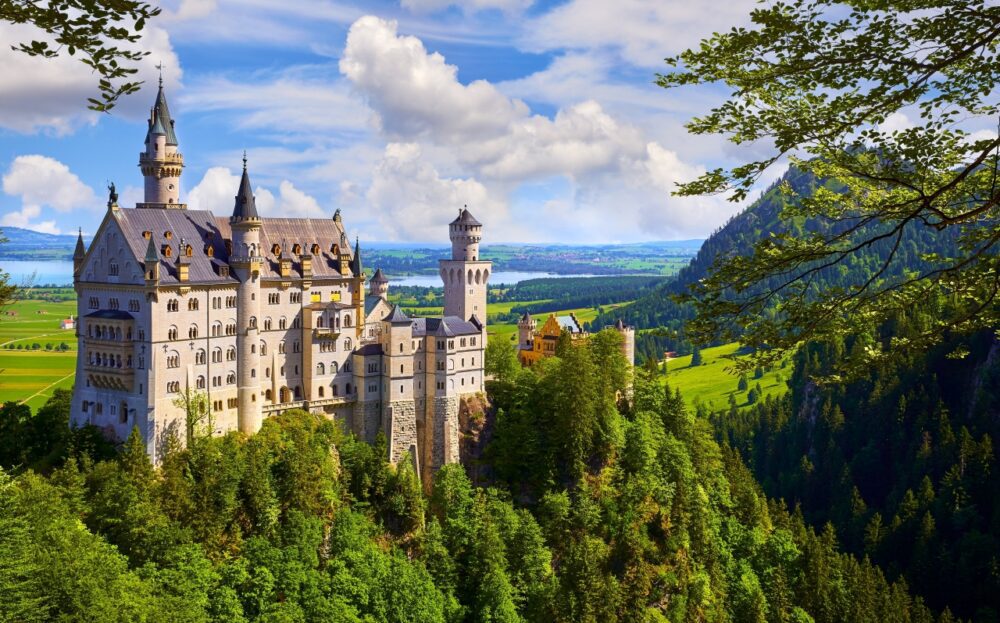
Munich is ideally located for some of the best day trips in Germany, making it an excellent base for exploring Bavaria and beyond. Some of the most popular excursions include Neuschwanstein Castle, one of the most famous castles in the world and the inspiration for Disney’s Cinderella Castle, and Zugspitze, Germany’s highest peak, offering breathtaking alpine views.
I took a day trip to Neuschwanstein Castle, and it felt like stepping into a fairytale. The castle’s stunning location, perched on a hill with the Bavarian Alps as a backdrop, was even more beautiful in person than in photos. The best part was that it was easy to reach from Munich via a combination of train and bus. Whether you love castles, nature, or charming villages, Munich’s location makes it easy to explore some of Germany’s most iconic sights.
5. Exceptional Museums and Art Galleries
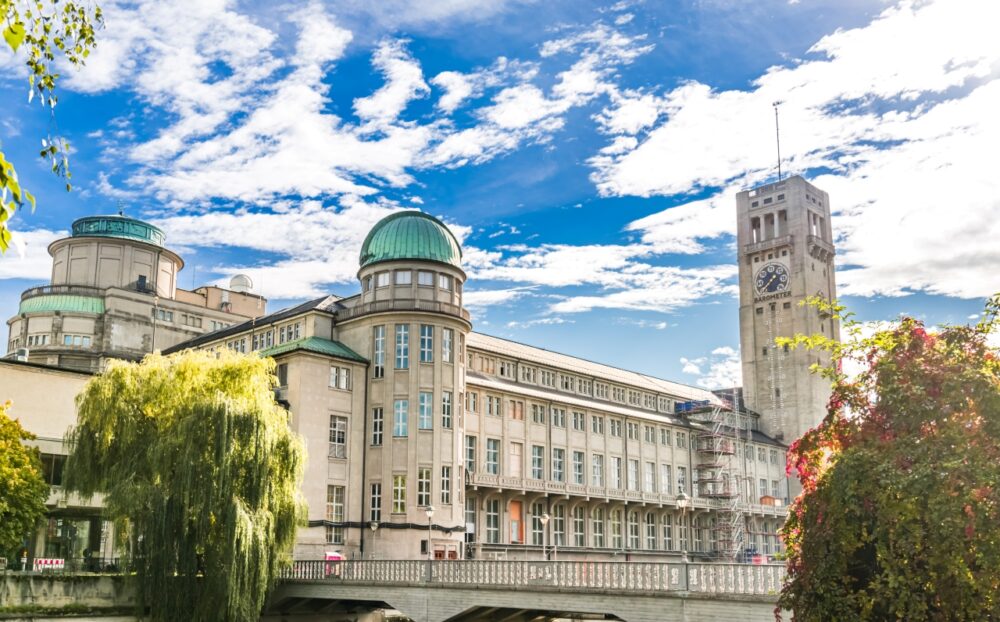
Munich has an incredible selection of museums, covering everything from classical art to cutting-edge technology. The city’s art scene is particularly impressive, with the Alte Pinakothek, Neue Pinakothek, and Pinakothek der Moderne forming a trio of world-class galleries showcasing everything from Renaissance masterpieces to modernist works. For science and technology lovers, the Deutsches Museum is one of the largest and most fascinating museums of its kind in the world.
I spent half a day at the Deutsches Museum, and it still wasn’t enough time to see everything. The hands-on exhibits, space exploration section, and massive collection of historic aircraft and machinery made it an incredible experience. Whether you’re an art enthusiast, history buff, or science geek, Munich’s museums offer something for everyone.
6. Beautiful Parks and Green Spaces
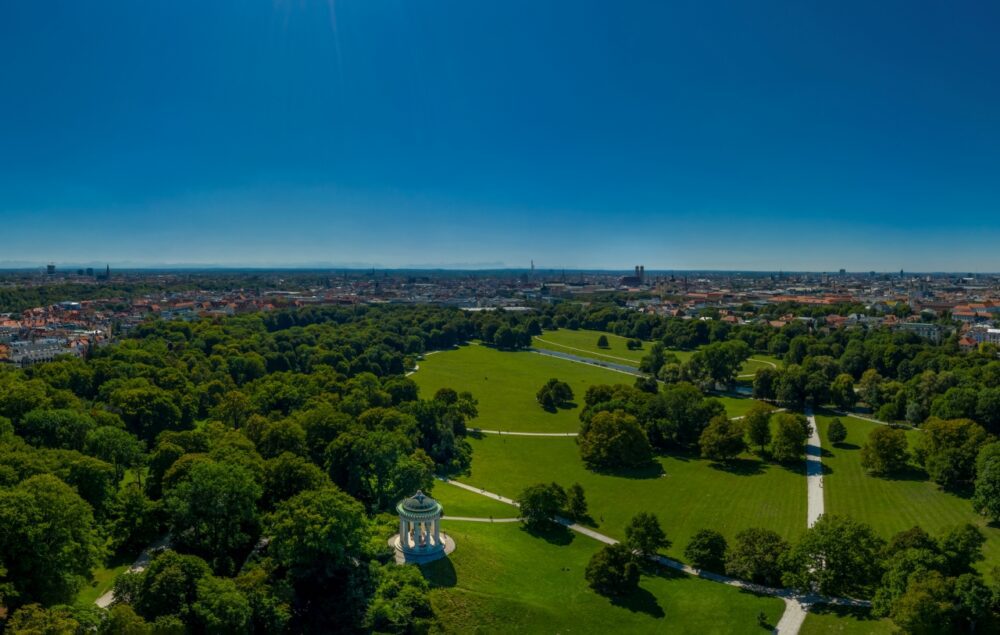
Despite being a major city, Munich has an abundance of green spaces, making it easy to escape the urban hustle and enjoy some nature. The Englischer Garten is one of the largest urban parks in the world, even bigger than Central Park in New York, and offers beautiful walking paths, open fields, a Japanese teahouse, and even a spot where surfers ride artificial waves on the Eisbach River.
I rented a bike and cycled through the Englischer Garten, stopping at the famous Chinesischer Turm beer garden for a refreshing drink. It was amazing to see how locals use the park, whether for sunbathing, picnicking, or even surfing. The combination of green spaces and outdoor activities makes Munich feel much more relaxed than many other European capitals.
7. A City Rich in Bavarian Traditions
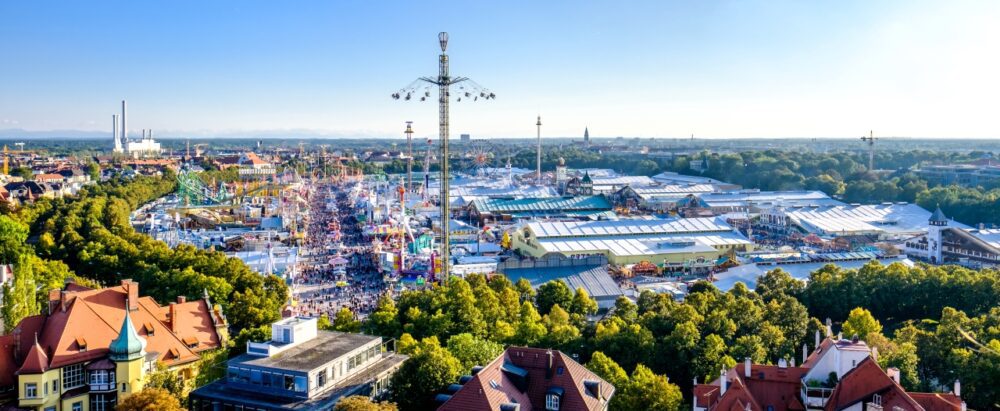
Munich is the cultural heart of Bavaria, and its strong regional identity is reflected in its festivals, food, and traditions. Oktoberfest is the most famous example, attracting millions of visitors each year to celebrate Bavarian beer, music, and culture. However, even outside of Oktoberfest, you’ll find plenty of traditional elements in everyday life, from waitstaff wearing dirndls and lederhosen to restaurants serving classic Bavarian dishes.
I was in Munich during a smaller local festival, and it was fantastic to see people in traditional dress, dancing to live folk music, and celebrating their heritage. Unlike some places where traditions are mainly for tourists, in Munich, they feel deeply ingrained in daily life, making the city a great place to experience Bavarian culture firsthand.
8. Excellent Public Transport and Walkability
Munich’s public transport system is one of the best in Europe, with an extensive network of U-Bahn (subway), S-Bahn (suburban trains), trams, and buses that make getting around the city easy and efficient. The transport system is clean, reliable, and well-connected, making it unnecessary to rent a car unless you’re planning trips into the countryside.
I found the U-Bahn particularly easy to navigate, with frequent trains and clear signage. Even better, the city center is very walkable, meaning many major attractions are within a short stroll of each other. Whether you prefer to walk or take public transport, getting around Munich is simple and hassle-free.
9. Delicious Bavarian Food
Munich is a dream destination for food lovers, offering hearty and satisfying Bavarian cuisine. From schnitzel and bratwurst to käsespätzle (a cheesy noodle dish similar to mac and cheese), the city’s culinary scene is both delicious and filling. Traditional beer gardens and markets like Viktualienmarkt are perfect places to sample local specialties.
One of my favorite meals was at a traditional beer hall, where I had Schweinshaxe, a crispy roasted pork knuckle served with dumplings and sauerkraut. The portion was massive, and the rich flavors made it one of the most memorable meals of my trip. If you enjoy comfort food, Munich is the perfect place to indulge.
10. A Safe and Clean City
Munich is consistently ranked as one of the safest and cleanest cities in Europe. Crime rates are low, public spaces are well-maintained, and the city has a generally welcoming and orderly atmosphere. Whether walking around at night or using public transport, I always felt safe in Munich.
The cleanliness of the city was also impressive—parks, streets, and public squares were all spotless, and even busy areas like Marienplatz felt well-kept. If you’re looking for a destination that feels secure and well-organized, Munich is an excellent choice.
Cons – Things to Consider When Visiting Munich
1. Munich is One of the Most Expensive Cities in Germany
Munich is known for its high cost of living, and this extends to tourists as well. Accommodation, dining, and even basic expenses tend to be more expensive here compared to other German cities like Berlin, Hamburg, or Cologne. Hotels, especially in the city center, can be quite pricey, and even budget options aren’t always cheap. Food and drinks in popular tourist areas, such as Marienplatz or near the Englischer Garten, also come with premium price tags.
I was surprised by how much a simple meal at a mid-range restaurant cost compared to other European cities. Even grabbing a quick coffee and pastry at a café added up faster than expected. Public transport and attractions are reasonably priced, but if you plan to eat out frequently or stay in the heart of the city, be prepared to spend more than you might in other parts of Germany. To save money, it’s a good idea to book accommodations well in advance, explore dining options outside of tourist hotspots, and consider visiting during the off-season when prices are lower.
2. The Weather Can Be Unpredictable and Rainy
Munich’s weather is notoriously unpredictable, with frequent rain showers and sudden temperature changes throughout the year. Summers can be warm and pleasant, but they also come with unexpected storms, while winters can be long, cold, and grey. Even in spring and autumn, you might find yourself needing both a light jacket and an umbrella on the same day.
I visited Munich in late September, expecting crisp autumn weather, but instead, I experienced chilly mornings, sudden rain showers, and even a brief heatwave in the afternoon. It made packing a challenge, as I had to be prepared for every possible condition. If you’re planning a trip, it’s best to dress in layers and always carry a small umbrella or raincoat, as the weather can change quickly. While Munich is beautiful in any season, those who prefer stable and sunny conditions might find the unpredictable climate frustrating.
3. It Gets Extremely Crowded During Oktoberfest and Peak Tourist Seasons
Munich is a popular destination year-round, but during certain times, the crowds can be overwhelming. Oktoberfest, the city’s world-famous beer festival, attracts millions of visitors each year, making it nearly impossible to find affordable accommodation and turning public spaces into packed tourist hubs. Even outside of Oktoberfest, Munich sees a high volume of tourists, especially in the summer months, leading to long lines at attractions and a lack of quiet spots in the city center.
I visited during peak summer, and while Marienplatz and the old town were stunning, they were also packed with tour groups, making it difficult to fully enjoy the atmosphere. Restaurants were busy, beer gardens were crowded, and finding a peaceful moment at major sights was challenging. If you prefer a quieter experience, visiting in the shoulder seasons—spring or late autumn—is a much better option. Those planning to attend Oktoberfest should book everything months in advance, as hotels and beer tent reservations fill up quickly.
4. Service in Restaurants Can Feel Slow or Unfriendly
Germany, in general, is known for a more reserved approach to customer service compared to some other countries, and Munich is no exception. In many restaurants, service can feel slow by international standards, and waitstaff may not check on you frequently or rush to take your order. Tipping culture is different from places like the United States, and some visitors interpret the directness of German service as being unfriendly.
I had dinner at a well-known beer hall and found that getting the attention of the waiter took longer than expected. While the food was great, I had to actively call the server over when I needed something, as they weren’t stopping by regularly. It wasn’t rudeness, just a cultural difference in how service works. If you’re dining in Munich, be patient and don’t expect the same level of attentiveness you might find in other countries. Knowing a few basic German phrases, such as “Entschuldigung” (excuse me), can also help when trying to get a server’s attention.
5. Many Shops and Businesses Are Closed on Sundays
One thing that surprises many visitors to Munich is that most shops and businesses, including supermarkets, are closed on Sundays due to Germany’s strict retail laws. While restaurants, cafés, and museums remain open, shopping options are extremely limited, and many smaller stores shut their doors entirely for the day. This can be frustrating for tourists who arrive on a Sunday expecting to explore local shops or pick up essentials.
I arrived in Munich on a Sunday and quickly realized that most grocery stores and retail shops were closed. Even major shopping streets like Kaufingerstraße felt noticeably quieter. While some bakeries and souvenir shops remain open, anyone needing to buy food or other necessities has to rely on train station stores or airport convenience shops. If you’re visiting over a weekend, it’s a good idea to plan ahead and do any shopping on Saturday to avoid inconvenience.
When to Visit Munich
The best times to visit Munich are spring (April to June) and autumn (September to October), when the weather is pleasant, and the city’s famous beer gardens and parks are at their most inviting. In autumn, Oktoberfest draws visitors from around the world, offering a lively and unforgettable atmosphere. Summer (July and August) is also popular, with warm temperatures ideal for exploring the city’s outdoor attractions and nearby lakes, but it can be crowded. Winter, from December to February, has its own charm, especially during the festive season, when Munich’s Christmas markets transform the city into a winter wonderland.
How to Get to Munich
Munich Airport (MUC), located about 35 kilometres northeast of the city centre, is a major international hub served by airlines like Lufthansa, British Airways, and Emirates. From the airport, the S-Bahn trains (S1 and S8) connect directly to the city centre in around 40 minutes. Airport shuttle buses and taxis are also available for a quicker but more expensive option. Munich is well-connected by Germany’s efficient train network, with high-speed ICE trains linking the city to destinations like Berlin, Frankfurt, and Vienna. Buses, including FlixBus, provide budget-friendly travel options to and from nearby cities.
Where to Stay in Munich
Munich has a variety of neighbourhoods to suit all types of travellers:
- Luxury: Altstadt (Old Town) – Perfect for those who want to stay in the heart of Munich’s historic and cultural sights. Hotel Bayerischer Hof and Mandarin Oriental Munich offer world-class luxury just steps from landmarks like Marienplatz and Viktualienmarkt.
- Mid-range: Maxvorstadt – Known as Munich’s cultural hub, Maxvorstadt is ideal for art and history lovers, with easy access to museums and galleries. Options like Hotel Europa and King’s Hotel Center offer stylish, mid-range stays in a vibrant area.
- Budget: Schwabing – A bohemian district north of the city centre, Schwabing is popular with students and artists. Smart Stay Hostel Munich City and Hotel Hauser provide affordable options with great connections to the city’s main attractions.
Getting Around Munich
Munich’s MVV public transport network is excellent, with U-Bahn (subway), S-Bahn (regional trains), trams, and buses covering the entire city and beyond. A single ticket or day pass is affordable and allows unlimited transfers across all modes of transport. For a more active option, the MVG Rad bike-sharing scheme is easy to use, with docking stations scattered throughout the city—perfect for cycling through the English Garden or along the Isar River. Walking is also enjoyable, particularly in the pedestrian-friendly Altstadt and Maxvorstadt. For day trips, Munich’s central train station, Hauptbahnhof, is the gateway to places like Neuschwanstein Castle and Salzburg.
How Long to Spend in Munich
Three to four days is ideal for exploring Munich’s highlights, including Marienplatz, the English Garden, Nymphenburg Palace, and the Deutsches Museum. This timeframe also allows time to sample Bavarian cuisine, enjoy a traditional beer garden, and take a stroll through the Viktualienmarkt. With an extra day, consider a side trip to Dachau Concentration Camp Memorial Site or Neuschwanstein Castle, both easily accessible from Munich. If you’re visiting during Oktoberfest, plan to stay at least three days to enjoy the festival while leaving time to explore the city’s cultural and historical gems.
Conclusion
So, is Munich worth visiting? Absolutely! With its Bavarian charm, stunning landmarks, and a cultural scene that ranges from traditional beer halls to cutting-edge art, Munich offers an unforgettable experience. Highlights like Marienplatz, the English Garden, and the world-famous Oktoberfest make it a top destination. While it can be crowded during peak events and isn’t the cheapest city, the quality of experiences makes it well worth the trip. If you’re ready to explore one of Germany’s most vibrant cities, start planning your trip to Munich today—you won’t regret it!
